IMPORTANCE OF BALANCED DIET OVER HIGH PROTEIN DIET
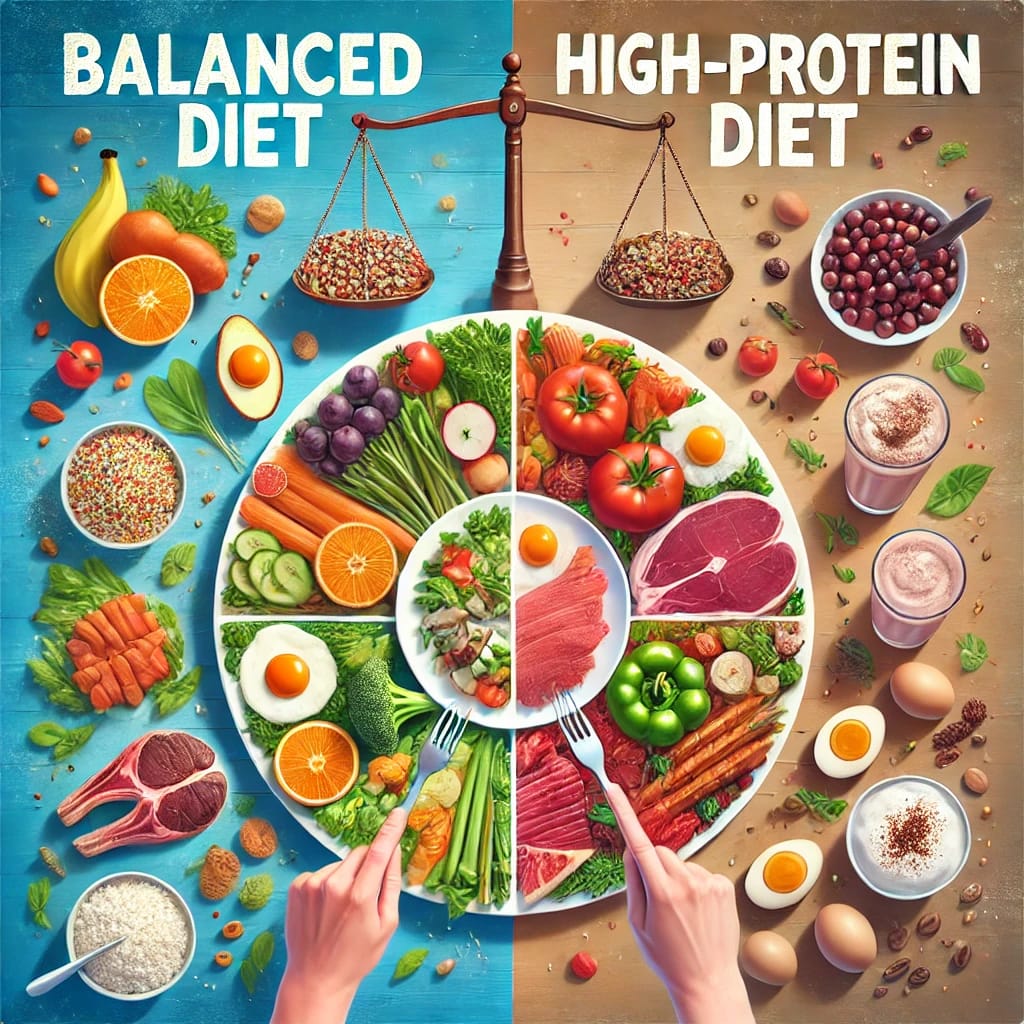
Nowadays, there is so much hype of high protein diets. 70% of the clients that consult us at Neena’s Diet Clinic demand high protein diets. Very few of them are concerned about balanced diet. In recent years, the rise of high protein diets has gained substantial attention. They are often promoted for weight loss, muscle building and overall health improvements.
While protein is undeniably a crucial macronutrient, the importance of a balanced diet cannot be overstated. A balanced diet comprising a variety of nutrients from different food groups is essential for maintaining overall health and well being.
Now we will discuss why a balanced diet is superior to high protein diets.
NUTRIENT DIVERSITY
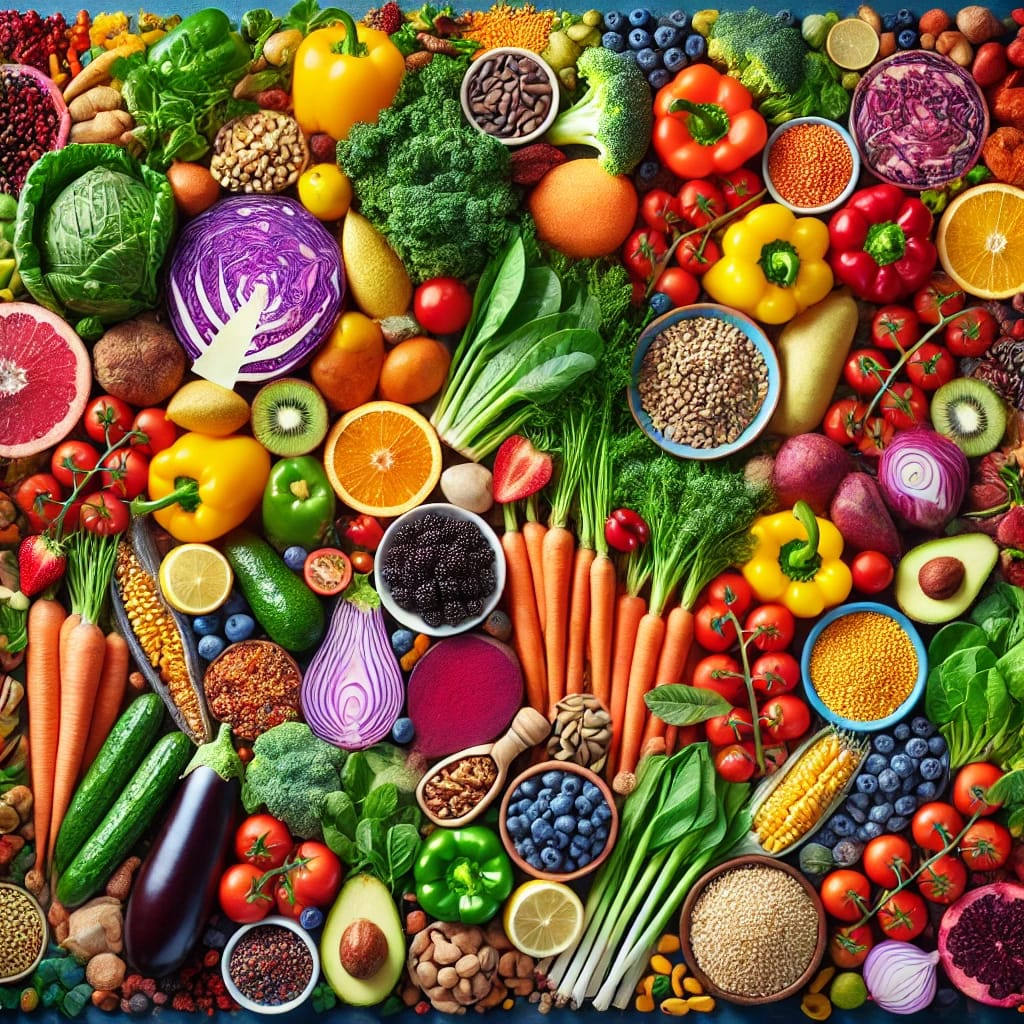
A balanced diet ensures a diverse intake of nutrients, including carbohydrates, fats, proteins, vitamins, minerals, fiber and water. Each of these nutrients plays a unique role in maintaining health. Carbohydrates are the body’s primary energy source and fuels the brain and muscles. Fats are essential for maintaining energy, hormone production, brain health and cell structure. Vitamins and minerals are essential for immune function, bone health and various metabolic processes.
In contrast, high protein diets often result in the neglect of other essential nutrients. While protein is vital for muscle repair and growth, overconsumption can lead to an imbalance.
For example, excessive protein intake can burden the kidneys, increase the risk of dehydration and potentially lead to deficiencies of other nutrients. A diet majorly focused on protein may lack adequate fiber, leading to digestive issues such as constipation and an increased risk of colorectal cancer.
LONG – TERM HEALTH RISKS

Sustainability must be considered when deciding any dietary approach. High-protein diets, particularly those rich in animal based proteins, can pose long term health risks. Studies have shown that diets high in red and processed meats are associated with an increased risk of cardiovascular diseases, certain cancers and type 2 diabetes. Saturated fats and cholesterol found in these foods contribute to the build up of arterial plaque, leading to heart disease.
Moreover, high protein diets can affect bone health. Excessive protein consumption increases the excretion of calcium in urine, potentially leading to osteoporosis over time. On the other hand, a balanced diet rich in fruits, vegetables, whole grains, proteins and healthy fats helps in fighting against these chronic diseases. The variety of nutrients in a balanced diet supports cardiovascular health, prevents hypertension and reduces inflammation.
HOLISTIC BODY FUNCTION
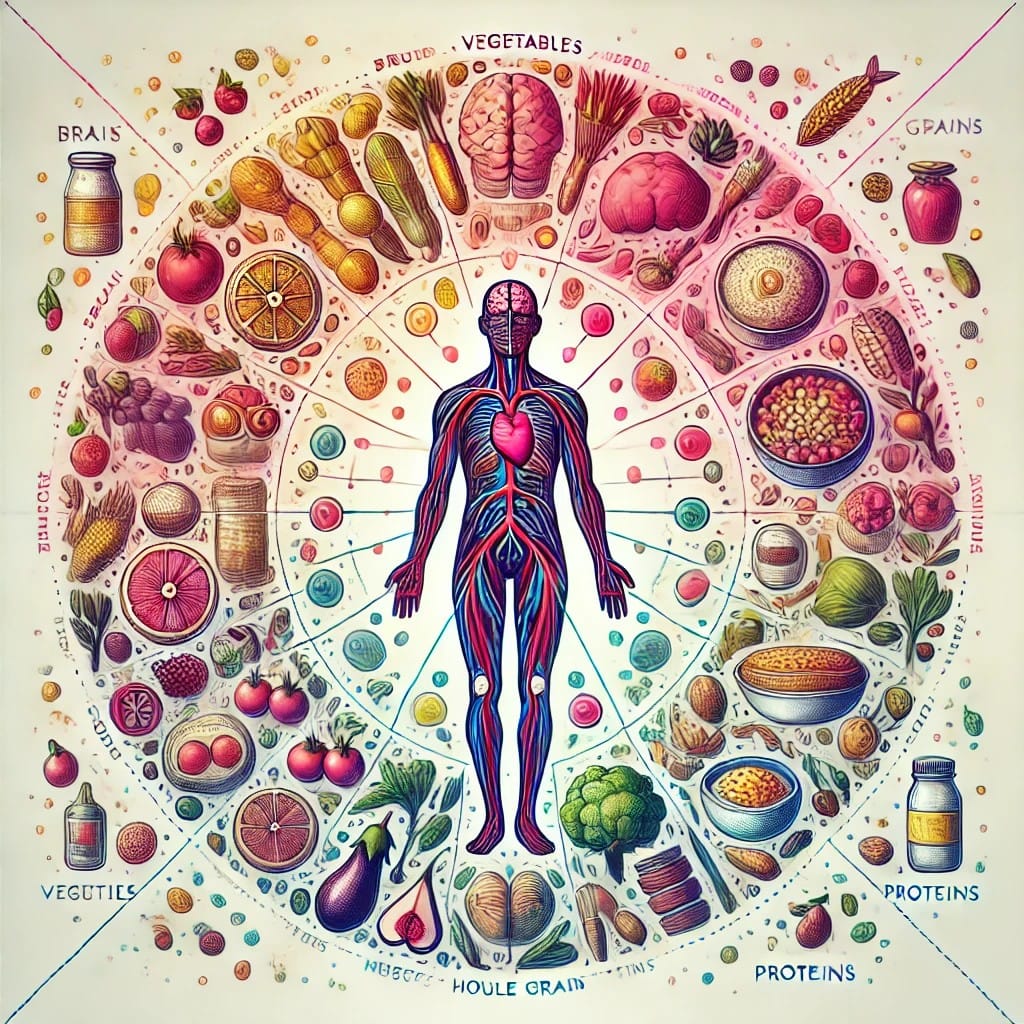
The human body is a complex system that depends on a harmonious interplay of nutrients to function optimally. Each nutrient has a specific role and an imbalance can disrupt this harmony. For example, carbohydrates are essential for brain functions as glucose is the brain’s primary energy source. A diet deficient in carbohydrates can lead to cognitive impairment, fatigue and mood swings.
Fats, often neglected in high-protein diets, are crucial for the absorption of fat- soluble vitamins (A,D,E and K), hormone production, and maintaining cell membrane integrity. Omega-3 fatty acids, found in fish, nuts and seeds are particularly important for brain health and reducing inflammation. A balanced diet ensures adequate intake of these essential fats, supporting overall health.
Fiber, predominantly found in plant-based foods, is another critical component often lacking in high protein diets. Fiber aids in digestion regulates blood sugar levels and lowers cholesterol. It also promotes a healthy gut microbiome, which is increasingly recognized for its role in immune function, mental health and chronic disease prevention.
WEIGHT MANAGEMENT AND SATIETY
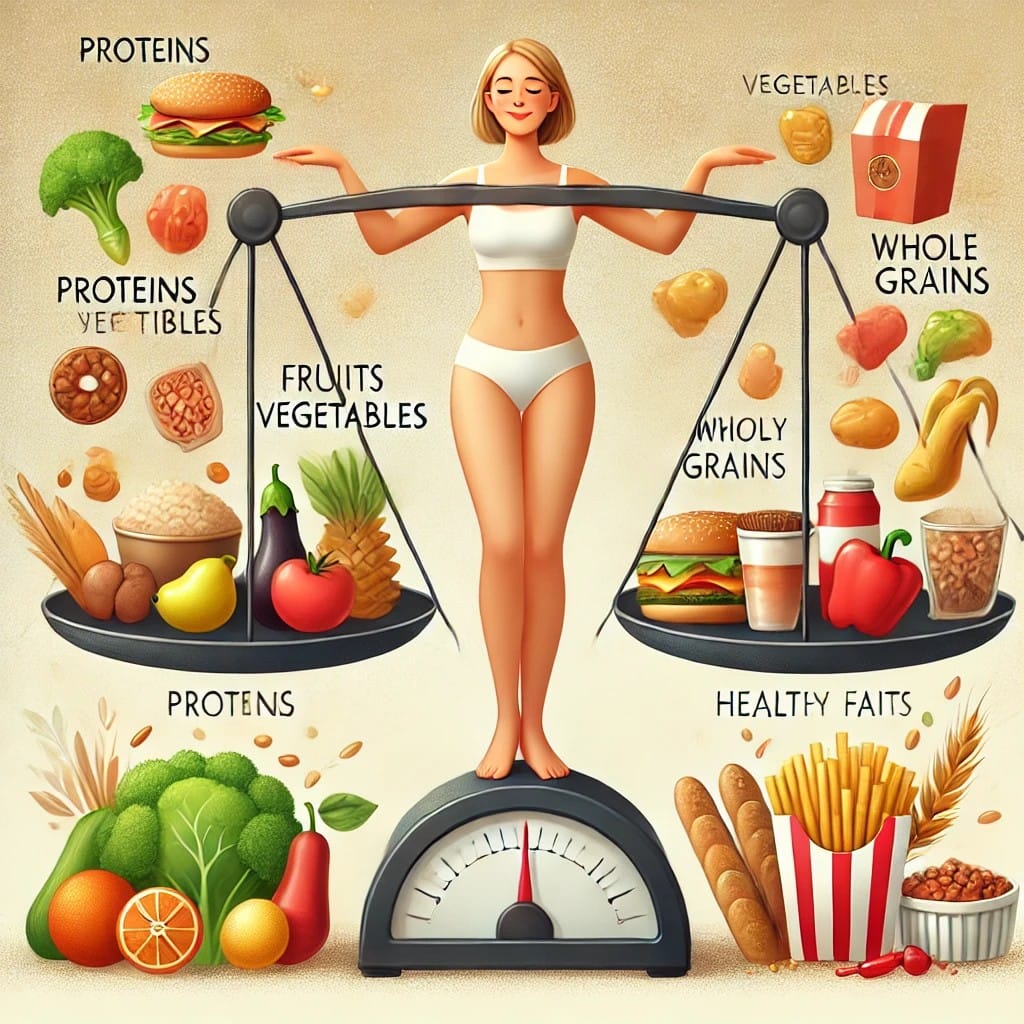
While high protein diets are often preferred for weight loss due to their satiating effect, the benefits of a balanced diet in weight management should not be overlooked. A balanced diet that includes adequate protein, healthy fats and complex carbohydrates can also promote satiety and reduce overeating. Fiber rich foods, such as fruits, vegetables and whole grains , add bulk to the diet and help maintaining feeling of fullness and preventing excessive calorie intake.
Furthermore, a balanced diet supports sustainable weight loss and maintenance. Extreme dietary approaches, like very high protein diets, are often difficult to maintain long term. When individuals revert to their previous eating habits, they may regain lost weight, sometimes even more. A balanced diet, however, promotes healthy eating habits that can be sustained over a lifetime, leading to gradual and lasting weight management.
MENTAL AND EMOTIONAL WELL BEING
Diet impacts not only physical health but also mental and emotional well being. A balanced diet rich in fruits, vegetables, whole grains, proteins and healthy fats provides the nutrients needed for optimal brain function. Nutrient deficiencies, such as those in high protein diets that lack diversity, can contribute to mental health problems like depression, anxiety and cognitive decline. For example, omega-3 fatty acids found in fish and flaxseeds have been shown to support brain health and reduce symptoms of depression. B vitamins, abundant in whole grains, vegetables and lean proteins are crucial for energy production and neurotransmitter function. Antioxidants, found in a variety of colorful fruits and vegetables, protect the brain from oxidative stress and support cognitive function.
HARMFUL EFFECTS OF A HIGH PROTEIN DIET
The popularity of high protein diets has surged in recent years, driven by claims of improved weight loss, muscle building and overall health benefits. While protein is a vital nutrient necessary for various bodily functions, an excessive intake can lead to numerous health issues. This essay explores the harmful effects of a high protein diet, considering aspects such as kidney damage, heart disease, nutritional deficiencies, digestive problems, bone health and the potential for increased cancer risk.
KIDNEY DAMAGE
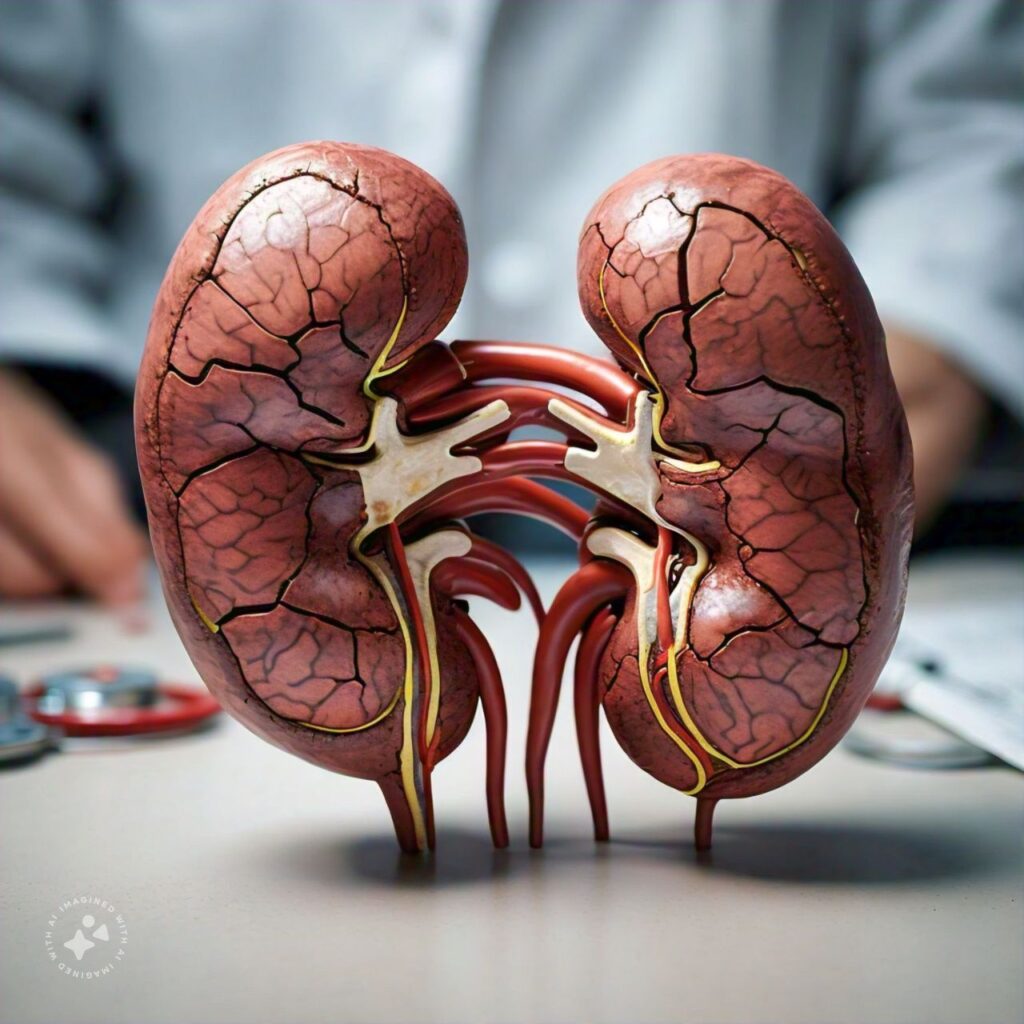
One of the most significant concerns with high protein diets is their impact on kidneys. Kidneys play a crucial role in filtering waste products from the blood, including those produced during protein metabolism. High protein diets increase the burden on the kidneys, as they must work harder to eliminate excess nitrogen, a byproduct of protein digestion. Over time, this increased workload can lead to kidney damage or worsen existing kidney conditions. Studies have shown that individuals with pre-existing kidney issues, such as chronic kidney disease, are particularly vulnerable to the harmful effects of high protein diets. For these individuals, excessive protein intake can accelerate the progression of kidney damage, leading to further health complications.
HEART DISEASE
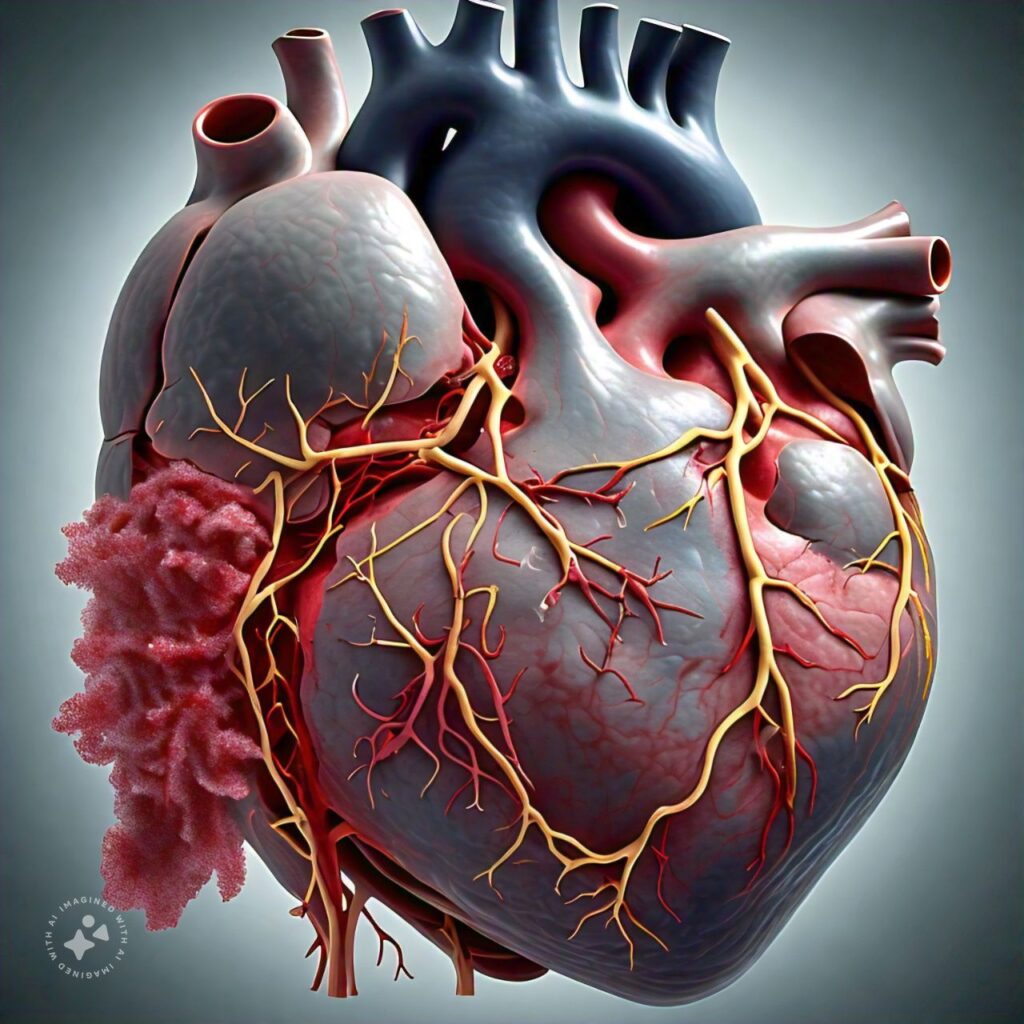
Another concern is the potential link between high protein diets and heart diseases. Many high protein diets, especially those emphasizing animal based proteins, can be high in saturated fats and cholesterol. These dietary components are known to contribute to the buildup of arterial plaque, increasing the risk of atherosclerosis, heart attacks and strokes. Red and processed meats, commonly consumed in high protein diets, have been associated with an elevated risk of cardiovascular disease. A diet high in these foods can lead to increased levels of LDL (low density lipoprotein) cholesterol, often referred to as “bad” cholesterol, which is significant risk factor for heart disease.
NUTRITIONAL DEFICIENCIES
While focusing on protein intake, individuals on high protein diets may neglect other essential nutrients, leading to nutritional deficiencies. Carbohydrates, fats, vitamins, fiber and minerals are all crucial for maintaining overall health and their deficiency can result in various health problems. Carbohydrates are the body’s primary source of energy, particularly for the brain and muscles. A diet low in carbohydrates can lead to fatigue, impaired cognitive function and decreased physical performance. Similarly, inadequate intake of dietary fiber, often found in carbohydrate rich foods like fruits, vegetables and whole grains can lead to digestive issues and increased risk of chronic diseases. Fats are essential for hormone production, brain health and the absorption of fat soluble vitamins (A, D, E and K). Neglecting healthy fats in favor of high protein foods can result in hormonal imbalances, cognitive issues and deficiencies in these vital vitamins. More over lack of nutrients can weaken the immune system, making the body more susceptible to infections and illnesses.
DIGESTIVE PROBLEMS
High protein diet can also have more effects on gut health. A diet that is high in protein and low in fiber can disrupt the balance of gut bacteria leading to digestive problems and impaired immune function. This can lead to a range of symptoms including bloating, gas and abdominal pain. Furthermore, a high protein diet can have negative effects on bone health. Excessive protein intake can lead to an increased excretion of calcium in the urine which can increase the risk of osteoporosis and bone fractures over time . This is particularly concerning for individuals who are already at risk for osteoporosis, such as older adults and those with a family history of the conditions. Calcium is essential for maintaining strong bones and teeth, and its deficiency can have severe consequences for bone health. A balanced diet that includes an adequate intake of calcium rich foods, such as dairy products, leafy greens, and fortified foods, is crucial for maintaining bone density and preventing bone-related disorders.
INCREASED CANCER RISK
A high protein diet has also been linked to an increased risk of certain cancers, including colon , breast and prostate cancer. This is thought to be due to high levels of animal protein and saturated fat that are often consumed in these diets. Processed meats, such as sausages, bacon, and deli meats, have been classified as carcinogenic by the World Health Organization (WHO) due to their association with colorectal cancer. The mechanisms behind this increased cancer risk are not fully understood, but it is believed that the high levels of heme iron, nitrates and nitrites in red and processed meats contribute the development of cancer. Additionally high protein diets often lack sufficient fruits, vegetables and whole grains which contain antioxidants and other protective compounds that help reduce cancer risk.
Moreover, a high protein diet can be harmful for the environment. Animal agriculture is a significant contributor to greenhouse gas emissions and deforestation, and a high protein diet that includes large amounts of meat and dairy products can contribute to these environmental problems.
Finally it is important to highlight that a high protein diet is not necessary for most individuals. The recommended dietary intake of protein is 0.8 grams per kg of ideal body weight, which can be easily met through a balanced diet that includes a variety of whole foods. Excessive protein take can put a strain on the body’s systems and lead to a range of health problems.

In conclusion, while protein is an essential nutrient, it is crucial to prioritize a balanced diet that includes a variety of whole foods. A well rounded diet provides all the necessary nutrients for optimal health, rather than relying solely on high protein intake. It is essential to be mindful of the potential risks associated with excessive protein consumption and instead focus on nourishing our bodies with a balanced diet. By adopting a balanced diet, we can maintain optimal health, reduce the risk of chronic diseases and support overall well being. Let us shift our focus from obsessing over high protein intake to embracing a balanced diet that includes a variety of whole foods. Our body will thank us for it.
« CARBOHYDRATES: NOT VILLAINS, BUT VITAL | ALL ABOUT MORINGA »